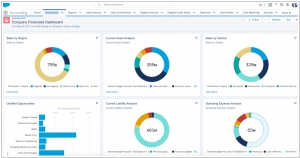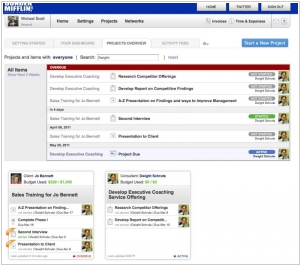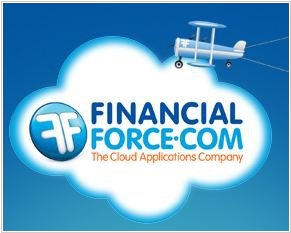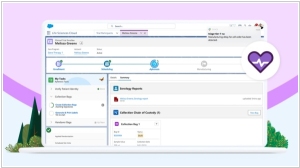FinancialForce vs Mavenlink
August 05, 2023 | Author: Michael Stromann
9

FinancialForce cloud ERP is a comprehensive and innovative financial management system that takes a fresh approach to a traditional business function. This online accounting application combines the power of the Force.com cloud with a groundbreaking accounting system design. FinancialForce Accounting is native to Salesforce CRM.
6

Mavenlink is a modern software platform for professional and marketing services organizations. It is the only solution that helps services firms establish an operational system of record that facilitates their business lifecycle, including key capabilities like resource management, project management, collaboration, project accounting, and BI.
FinancialForce and Mavenlink are both popular software solutions in the professional services automation (PSA) space, but they have distinct differences in their offerings and focus.
FinancialForce is known for its comprehensive cloud-based platform that combines professional services automation with financial management capabilities. Their solution is built on the Salesforce platform, leveraging its robust CRM functionalities. FinancialForce offers features such as project management, resource management, time and expense tracking, invoicing, and revenue recognition. Their solution is designed to provide end-to-end visibility and control over the entire project lifecycle, integrating project execution with financial processes.
Mavenlink, on the other hand, specializes in providing a unified platform specifically for project management and resource planning. Their solution offers features such as project planning, task management, collaboration, resource allocation, and financial tracking. Mavenlink emphasizes real-time visibility into project performance and resource utilization, enabling teams to optimize their project execution and maximize profitability.
See also: Top 10 Online ERP software
FinancialForce is known for its comprehensive cloud-based platform that combines professional services automation with financial management capabilities. Their solution is built on the Salesforce platform, leveraging its robust CRM functionalities. FinancialForce offers features such as project management, resource management, time and expense tracking, invoicing, and revenue recognition. Their solution is designed to provide end-to-end visibility and control over the entire project lifecycle, integrating project execution with financial processes.
Mavenlink, on the other hand, specializes in providing a unified platform specifically for project management and resource planning. Their solution offers features such as project planning, task management, collaboration, resource allocation, and financial tracking. Mavenlink emphasizes real-time visibility into project performance and resource utilization, enabling teams to optimize their project execution and maximize profitability.
See also: Top 10 Online ERP software
FinancialForce vs Mavenlink in our news:
2015. FinancialForce cloud ERP raises $110M to take on SAP and Oracle

FinancialForce, the cloud-based ERP solution built on the Salesforce1 platform, has announced a successful funding round, securing an additional $110 million in investment. As the cloud computing industry continues to mature, we are witnessing a growing trend of back-office functions, such as ERP, transitioning to the cloud and gaining significant traction. Traditionally, this market has been dominated by established players like SAP, Oracle, and Microsoft. However, cloud-based providers like FinancialForce and NetSuite are starting to make their presence felt. FinancialForce, in particular, stands out as an intriguing player in the field. While it positions itself as the logical ERP choice for Salesforce customers, it has also established itself as a strong offering in its own right. Leveraging the capabilities of Force.com, FinancialForce not only integrates seamlessly with Salesforce but also provides a credible and independent ERP solution.
2010. Top 10 Most Popular Apps in the Google Apps Marketplace

Google Apps Marketplace - online marketplace for Google Apps add-ons - was opened on March. During 10 first months it has collected 250 applications used by about 4 million users. Recall that to add your own application to Google Apps Marketplace, you need to link Google-authorization, pay $100 and pass through moderation. According to Google, the most popular Google Apps add-ons are project management system, CRM systems and accounting services (these are the very tools that are not available in Google Apps by default). Here are the top 10 most popular applications in the SaaS marketplace in 2010: ***


